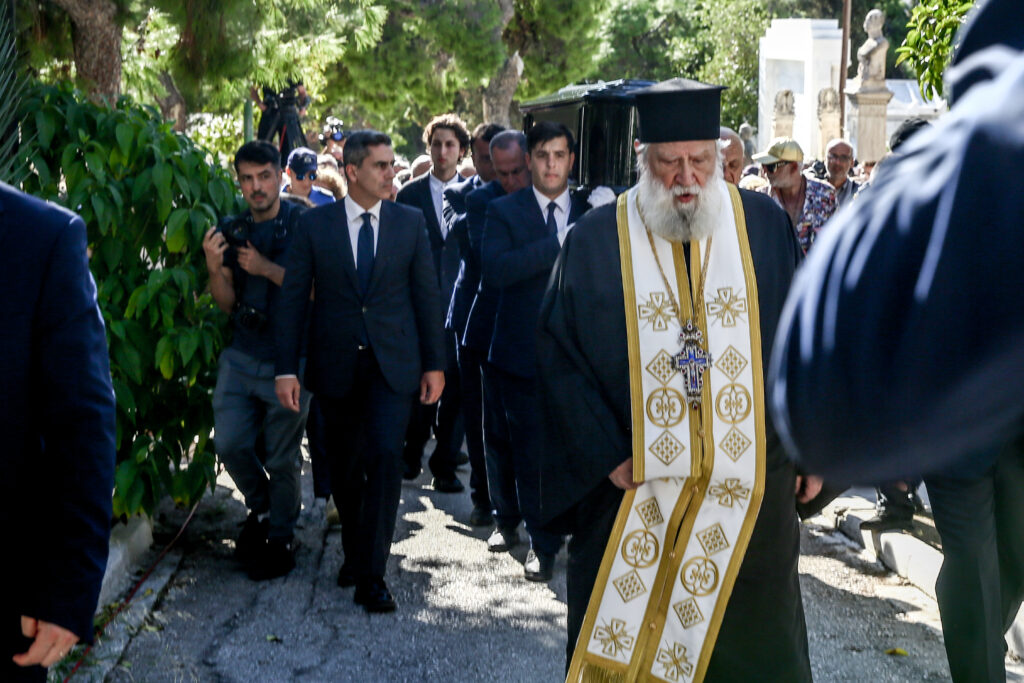Dionysis Savvopoulos, the great composer whose work accompanied generations and filled the world with emotions and experiences, was laid to rest at Athens’ First Cemetery. The funeral procession arrived shortly after 3:15 PM at the First Cemetery, accompanied by the beloved “Nionios'” songs. “Synnefola,” “Let the dances continue,” and “Don’t speak anymore, my love” were among the songs that filled the air throughout the burial ceremony.
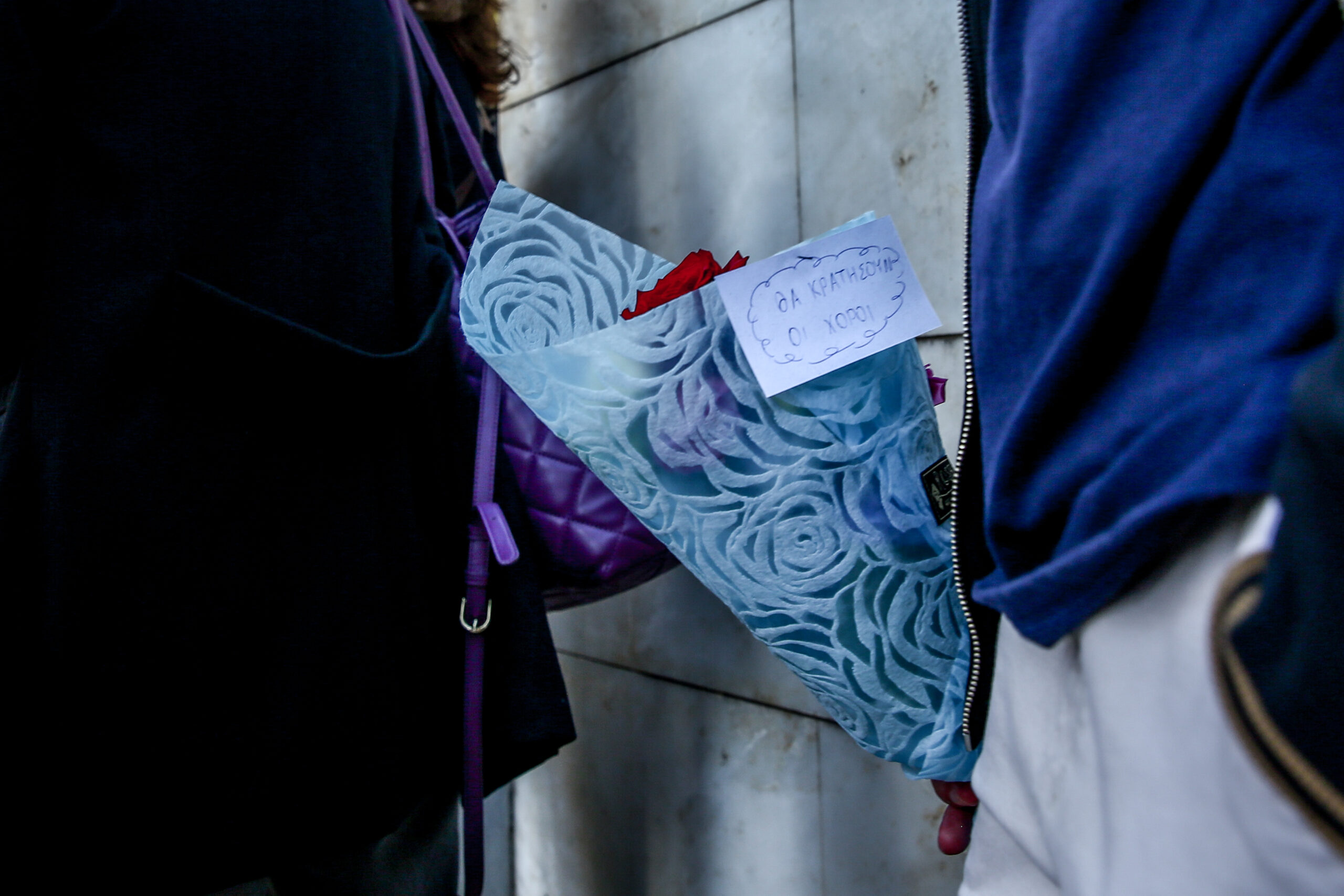
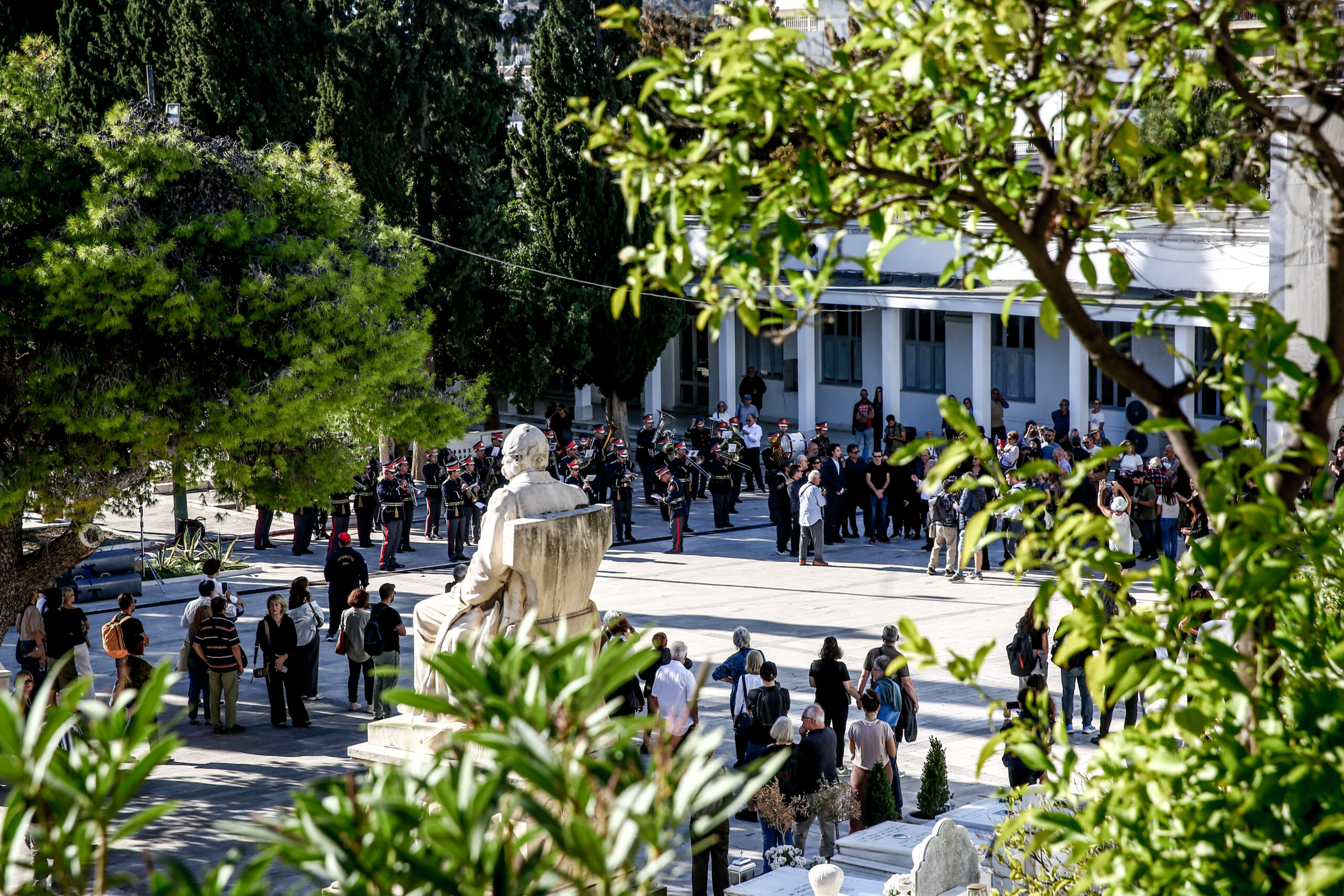
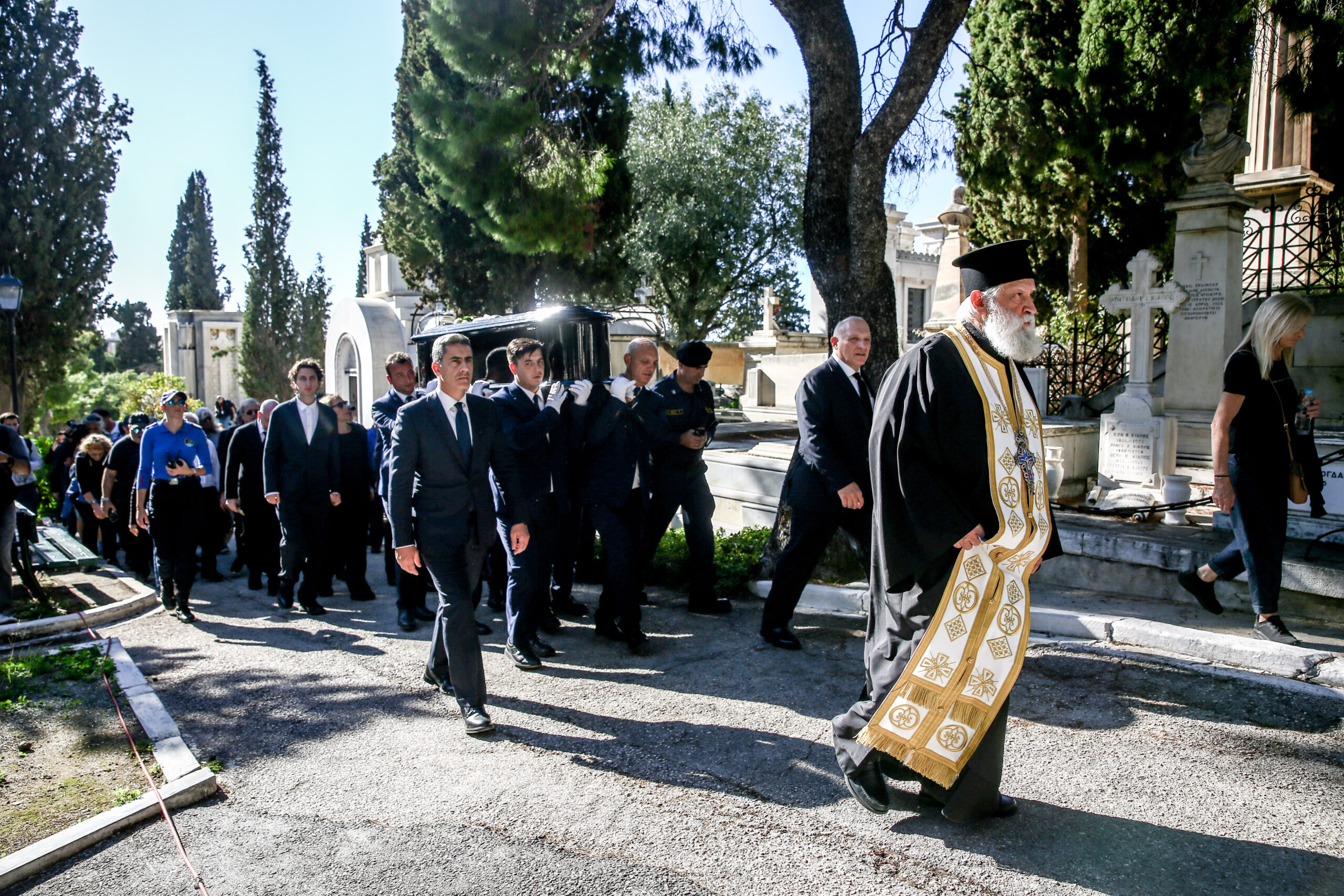
Earlier, crowds had gathered to bid their final farewell to Dionysis Savvopoulos, who passed away at age 81 after a courageous battle with cancer. The funeral service was held at the Athens Metropolitan Cathedral, officiated by Archbishop Ieronymos of Athens and All Greece. The composer’s body was transported to the Athens Cathedral amid applause from the gathered crowd. In an atmosphere of deep emotion, people who loved “Nionios'” work came to the cathedral chapel before the burial at the First Cemetery. Eulogies were delivered by Kyriakos Mitsotakis, Katerina Sakellaropoulou, Alexis Kyritsopolous, Dimitra Galani, Alkinoos Ioannidis, Giorgos Skabardonias, and his personal physician. The Navy band then played Dionysis Savvopoulos’ music, accompanying his coffin from the Athens Cathedral. The first song was “What I played in Lavrio,” followed by “My little cloud,” with the crowd clapping rhythmically. The Athens Municipal Philharmonic bid farewell to Dionysis Savvopoulos with “Let the dances continue,” just before the artist’s burial.
Dionysis Savvopoulos’ family expressed their wish that instead of wreaths, money be donated to the Music Department of the Ionian University, where he taught, and the Department of Music Science and Art at the University of Macedonia.
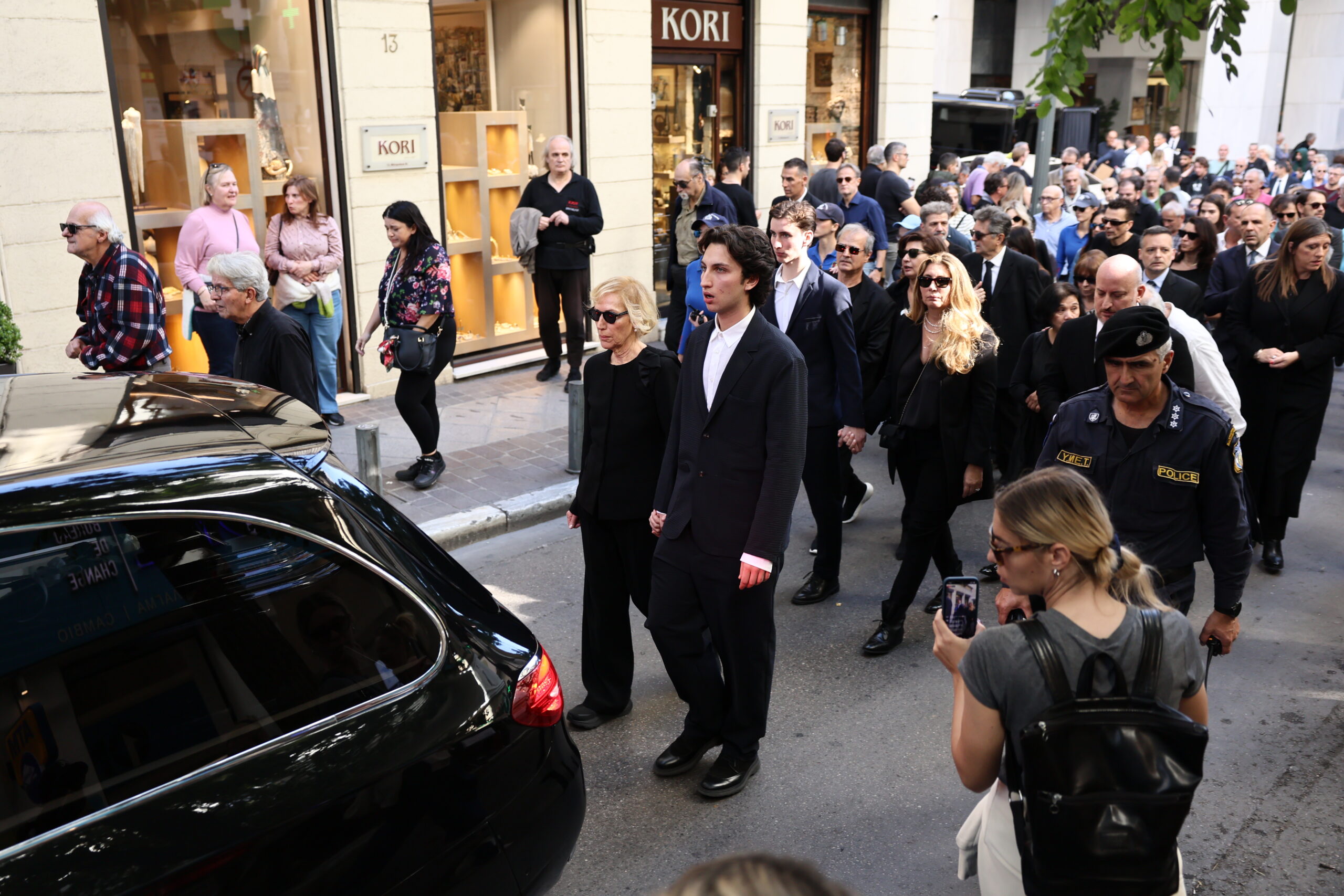
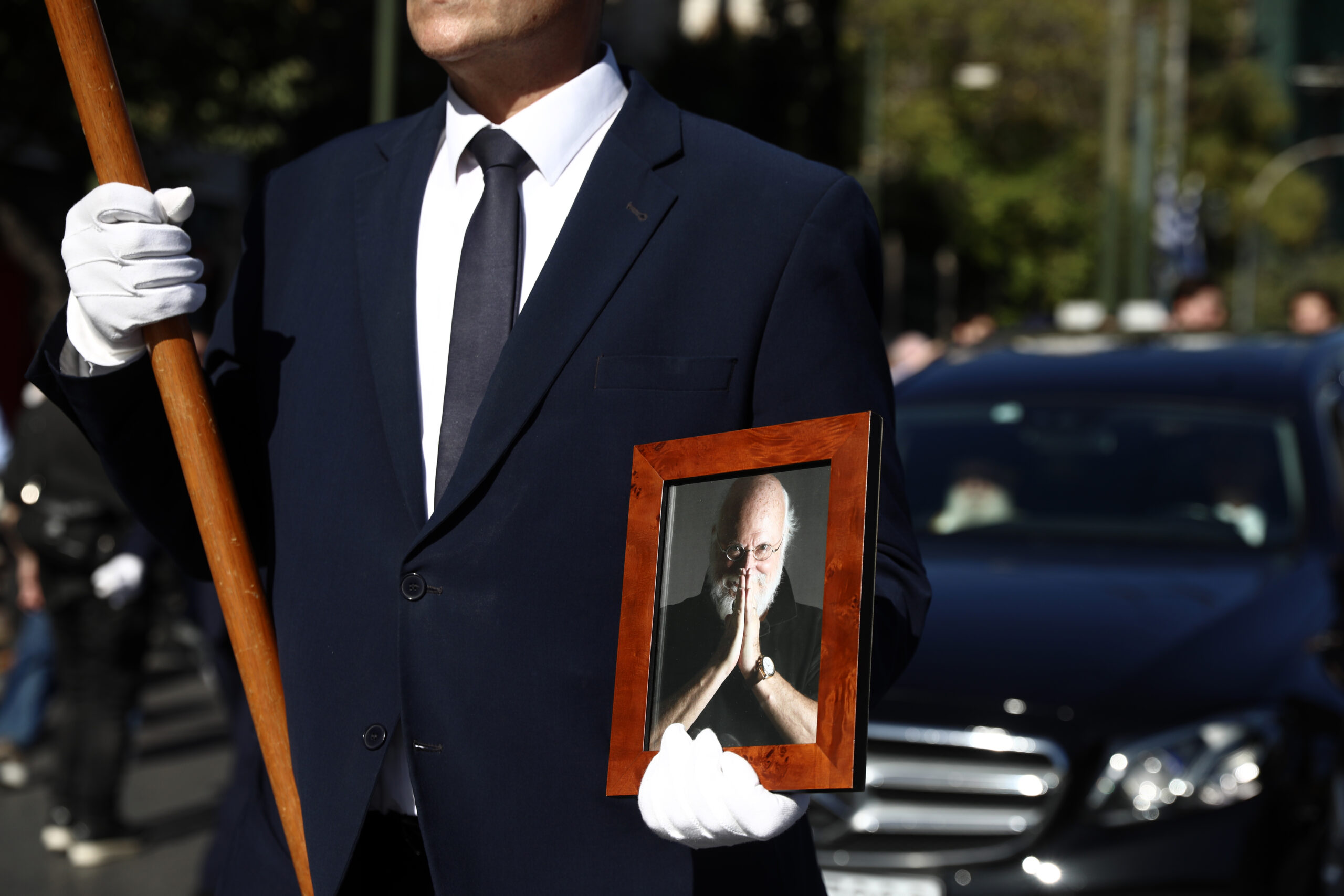
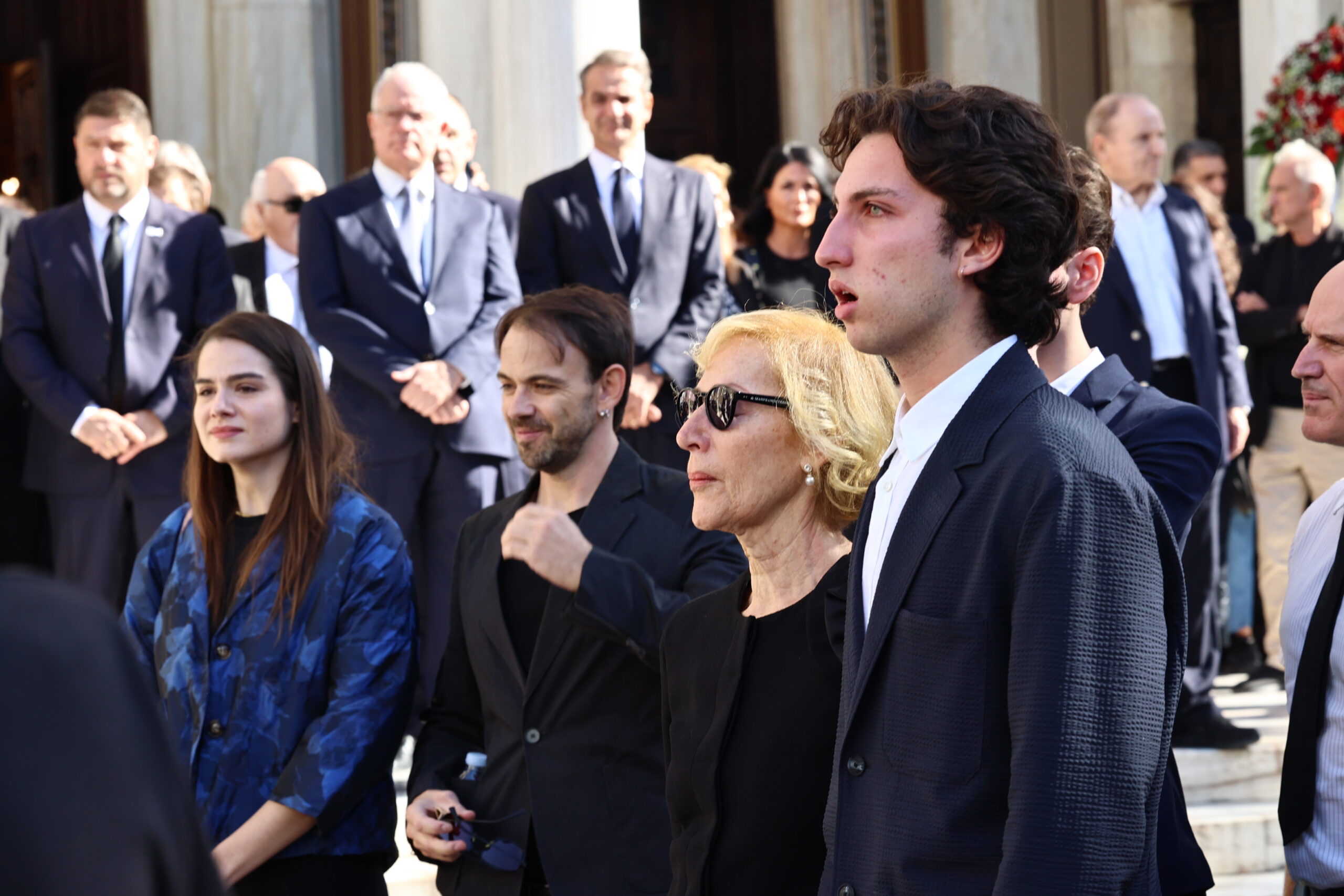
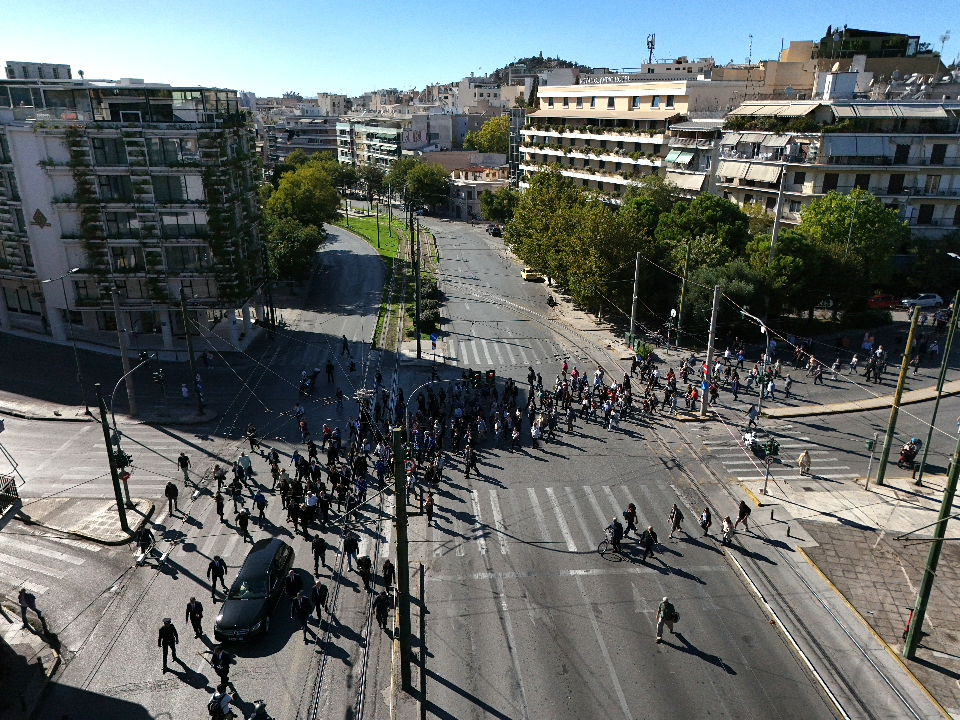
Political and state leadership, the entire artistic community, and all those who wanted to say their own “goodbye” to Dionysis Savvopoulos attended the funeral. President of the Republic Konstantinos Tassoulas, Prime Minister Kyriakos Mitsotakis, former President Katerina Sakellaropoulou, New Democracy Vice President Kostis Hatzidakis, government ministers including Giorgos Gerapetritis, Nikos Dendias, Adonis Georgiadis, and Niki Kerameus, opposition leaders like Zoe Konstantopoulou, politicians such as Evangelos Venizelos and Maria Damanaki, and renowned artists including Eleftheria Arvanitaki, Eleni Tsaligopoulou, Phoebus Delivorias, Eleonora Zouganeli, and Mitlos Logiadis all paid their respects to Dionysis Savvopoulos.
Dionysis Savvopoulos funeral: Prime Minister Kyriakos Mitsotakis’ eulogy
“I am here not only as a friend and admirer, but I have a debt to a great Greek. Nionios walked alongside our country’s life throughout his entire existence, giving us a push of joy during difficult uphill climbs and warning us. Having his own view of things, openly. That’s why in music he managed to bring rock close to art song, just as in politics,” Prime Minister Kyriakos Mitsotakis stated.
Mr. Mitsotakis quoted lyrics from Dionysis Savvopoulos’ “Angel – Archangel,” “because they constitute direct and public discourse. They succeed in uniting the sensitive space of art with political realism.”
“The news he brought us was all a lie
and it sounded pleasant to our ears
Because every lie of his seemed like truth
and listening to him, our souls were calmed
We immediately understood what he was trying to say
and we told him to leave, numbly
Since he had no pleasant news to tell
it was better that he tell us none. Proof that artistic sensitivity becomes much more powerful.”
“Dionysis Savvopoulos never accepted positions,” he emphasized, adding that he belongs to the few who, while entertaining us, define us. He became the chronicler of the Greek journey for more than half a century. His legacy is part of our collective memory. “Our Nionios, I will bid you farewell with a big thank you. From tomorrow you won’t exist only through your songs. We will think of you every time a young person picks up a guitar and every time we look at ourselves in a mirror. With our good and our crooked sides,” he said.
Sakellaropoulou: You sang for us, the nation, the people and history
“You sang for us, the nation, the people and history, tradition and modernity, the connection between East and West,” said former President of the Republic Katerina Sakellaropoulou.
“Your work is not just a musically depicted history of our land,” she said, noting that he became, was, and remained authentic until the end, as he promised when he left Thessaloniki. “You weren’t dragged by your audience, you were always ahead, even against them,” she said, adding that he stood upright with dignity, head held high, with Aspa, his wife, always by his side.
“And the final years came, of illness with hospitable evenings, friends and memories, life’s fullness and your faith that everything is here, nothing is lost,” she said. “We will take care of Aspa for you, be sure. Good journey, beloved Dionysis,” she concluded.
Stamatis Fasoulis: Savvopoulos took nothing and made it everything
“You leave behind a very rich Greek song. You loved it deeply,” said Stamatis Fasoulis, adding that he transferred life into song. “He took nothing and made it everything,” he added.
Declaring himself moved, Stamatis Fasoulis said he didn’t want to cry. “I won’t say goodbye to you, I’ll say see you again in heaven’s garden.”
Skabardonias: I bring you Thessaloniki’s grief and respect
“Dear Dionysis, I come from Thessaloniki and bring you its grief and respect,” said writer Giorgos Skabardonias.
“The mother city bids you farewell. With its windswept castles you sang about, the boats, the flares, the choirs, the crowd that sees visions. Your neighborhood Analipsi waves to you. There, near where you first saw Tsitsanis holding a small violin and flying ten points above the ground. Your old friends, Babis Kallipoltis, Takis Simotas, your childhood friends bid you bitter farewell.”
“Spiritual parents are the most beloved,” the writer noted, saying that Dionysis Savvopoulos arrived in Athens with conditions at minus infinity and managed to create such a great work. “You lived here with your beloved Aspa. And here you gave birth to your children,” he said.
Alkinoos Ioannidis: Savvopoulos highlighted the precious, raised the country’s level
“You loved celebrations, groups, symposiums, festivals. You enjoyed them,” said Alkinoos Ioannidis, recalling that the first concert he attended as a child in Nicosia was by Dionysis Savvopoulos, when no one else existed.
“You raised us, supported us, liberated us. Together with your beloved teachers, Manos Hadjidakis and Tsitsanis, you highlighted the precious, collectively raised the country’s level and each person’s level.”
Invoking his brother, who told him that “Savvopoulos abolishes mourning,” Alkinoos Ioannidis wondered: “Why did I cry so much? For whom? For you or for me?” He also referred to his contradictions, saying he was an ascetic with expensive tastes, an awkward sage. “We never knew when you were playing a role and when you were being yourself.”
“Only a rebel could reach where you reached. We wanted to explain you, you were inexplicable. In your last concert you were more vulnerable and more certain than ever,” he said.

